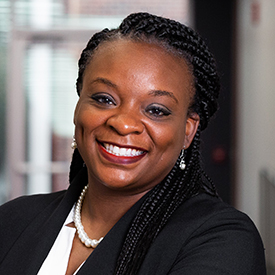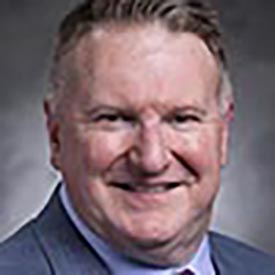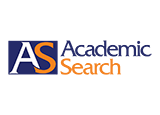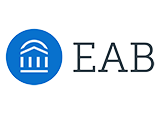Emerging Leaders Program
ELP is designed for academic and administrative professionals to gain a greater appreciation of the Academy and build the skillset and mindset to lead campus initiatives and advance to more senior leadership roles. Participants graduate with skills, connections, and support necessary to navigate the transition to higher administrative roles.
Get notified.
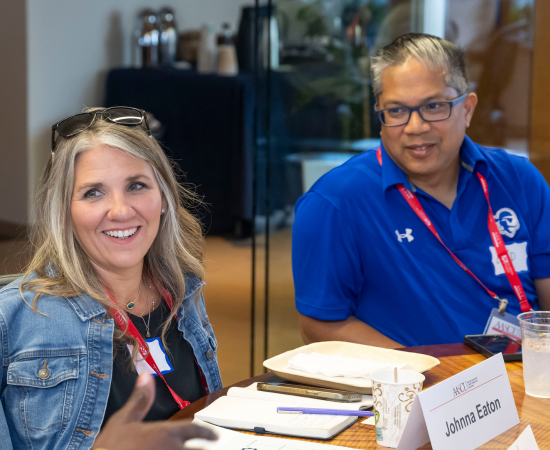
ELP is designed to prepare the next generation of higher education administrators to be effective, compassionate, resilient, accountable and courageous leaders and to further their institutions’ path to student success.
ELP provides the opportunity for participants to assess their individual leadership style and strengths and to apply the skills learned in the instructional portion of the program to a project/initiative on their home campus over the course of the academic year.
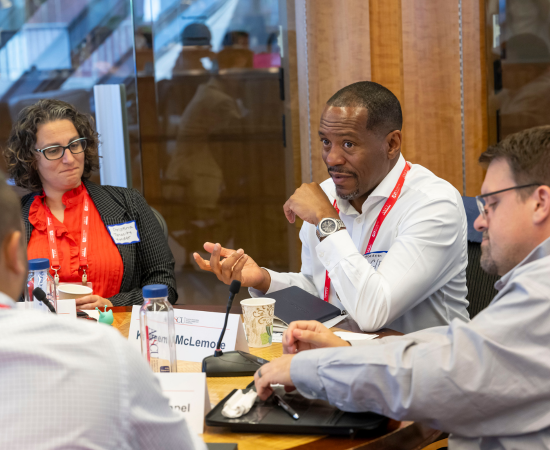
Who Should Participate
- Academic and administrative professionals who are exploring opportunities to advance to higher-level administrative positions.
How You’ll Benefit
- Gain a comprehensive understanding of the various aspects of the academe and how they relate to each other.
- Develop critical skills for managing complex projects and leading institutional change.
- Build a strong and supportive network of peers and mentors.
- Demonstrate leadership skills by leading an on-campus project or initiative.
What to Expect
- Discussions of the evolving leadership competencies needed to lead in today’s complex and turbulent times.
- Tailored to the distinctive needs of mid-career academic or administrative professionals exploring leadership roles at state colleges and universities
- Opportunity for real-time application and impact of tools and trainings via a campus project
- Strong relational component—commitment to create and support trust, encourage peer-to-peer learning, confidentiality, and safety among the cohort
- Gain a comprehensive understanding of the various aspects of the academe and how they relate to each other.
- Develop critical skills for leading transformational institutional change.
- Build a strong and supportive network of peers and mentors.
- Demonstrate leadership skills by leading an on-campus project or initiative.
- Academic affairs
- Budgeting, finance and administration
- Enrollment Management and Student Affairs
- Fundraising and alumni relations
- Managing staff and faculty
- Navigating the search process
- National trends in higher education
- Project management and change management
Participants will lead a project or initiative at their home campuses over the course of the academic year, under the guidance of a designated mentor. The project will have an impact on the campus community and also align with the participant’s professional goals. Examples of university projects include the following:
- Chairing or co-chairing a division, university-wide committee, or task force that requires working with multiple constituencies
- Managing a project for a division or university strategic initiative
- Conducting a research project that investigates an important challenge the university faces and provides an opportunity for the participant to influence campus decision-makers using data
Programming will be a blended experience, with in-person and virtual programming. In-person programming will not be livestreamed or otherwise recorded. 100% attendance and participation is expected. Virtual programming will take place on select Wednesdays and Fridays between 3 and 5 p.m. ET (exact dates TBD).
- Up to 12 interactive 60-to 120-minute interactive virtual sessions (May 2025 and August–December 2025)
- An intensive in-person program at AASCU’s Washington, D.C. office (June 24–26, 2025)
- A project or initiative the participant leads on their home campus
- Applications that are complete, including a nomination/endorsement from a president/chancellor or cabinet-level administrator, and submitted by the deadline will be considered.
- ELP faculty review applications and select a cohort that reflects the diversity of AASCU institutions.
- Preference is given to applicants from AASCU member institutions.
- A complete application for ELP includes the following:
- Nomination or endorsement from the president/chancellor or cabinet-level administrator from your home institution
- Clear and concise summary of your personal and professional development goals
- Description of your campus project and how it supports your professional goals
- Commitment to 100% participation
2025 Registration Fees
- Participants from AASCU member institutions: $2,500
- Participants from non-member institutions: $3,500
- The registration fee covers program administration, meals during the in-person intensive, and all materials. Participants are responsible for their own travel and accommodation in Washington, D.C.
- Upon acceptance to ELP, participants must register no later than March 31, 2025.
Scholarships
- Limited scholarships are available to accepted applicants from AASCU member institutions.
Cancellation Fees
- Cancellation requests received on or after May 1, 2025 are NOT eligible for a refund.
- If you need to cancel after May 1, please email leadershipdevelopment@aascu.org to explore if you are eligible for a deferral to a different iteration of ELP or receive a credit toward a different program.
Meet the 2024 ELP faculty.
ELP has convened an impressive faculty of current and former presidents, chancellors, cabinet-level administrators, and national subject matter experts.

Andy
Brantley
President and CEO
College and University Professional Association for Human Resources

Mary C.
Brackett
Senior Director
University of Virginia

Matthew
Cooney
Associate Professor of Education; Director of the Interdisciplinary Leadership Doctoral Program
Governors State University (IL)
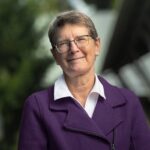
Kristin G.
Esterberg
Chancellor
University of Washington Bothell
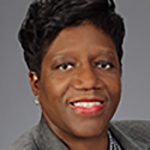
Marion R.
Fedrick
Executive VP and Chief of Staff
Georgia State University

Dan
Feely
Managing Partner
Transforming Solutions, Inc.
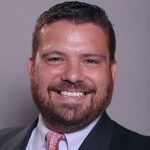
Shawn
Hartman
Chief Operating Officer
Academic Search

Justin M.
James
Development Officer; Presidential Leadership Fellow
Pennsylvania Western University
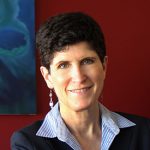
Lynn
Mahoney
President
San Francisco State University (CA)

Rose Elena
McAuliffe
Vice President, Business and Finance / Chief Financial Officer
California State University, Stanislaus

Carlitta M.
Moore
Assistant Dean for Diversity, Equity & Inclusion – College of Nursing and Health Professions; Clinical Education Coordinator/Assistant Professor – Master of Athletic Training Program
Arkansas State University Jonesboro

Mel C.
Netzhammer
Chancellor
Washington State University Vancouver
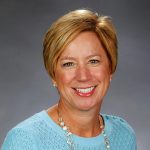
Kathleen
Scott
Vice President of Leadership Development and Partnerships
AASCU

Ed
Venit
Managing Director
EAB

Ben
Weikert
Department Chair
State University of New York Cobleskill
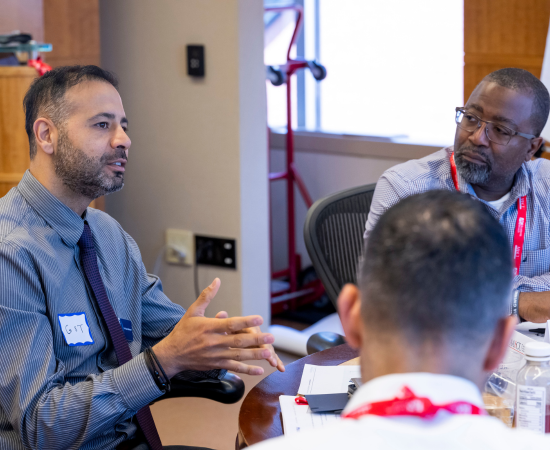
ELP connects, equips, and empowers the next generation of higher education leaders.
ELP has a high impact on the skillsets and mindsets of program participants and the curriculum effectively addresses top-of-mind issues for today’s emerging leaders at AASCU institutions.
The Numbers
93%
Percentage of 2023 cohort members who reported feeling connected to colleagues at peer institutions at the end of ELP.
4.63 out of 5
Average rating of content, presentation, and speaker quality for all 2023 ELP programming.
33%
Increase in feeling equipped with the knowledge and relationships needed to pursue career goals from the start to the end of the program (2023 cohort).
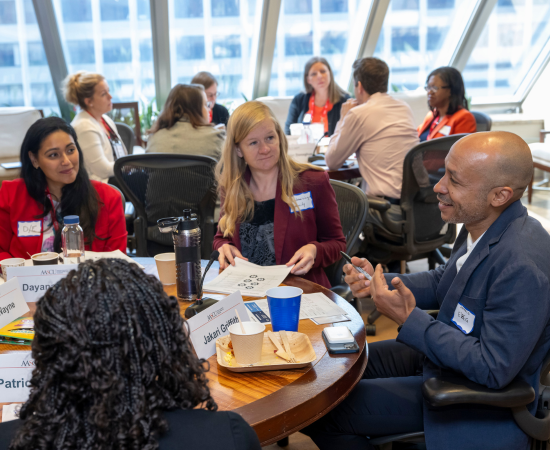
The Stories
Meet the 2024 Cohort
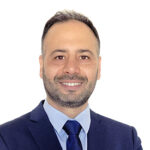
Husam
Alshareef
Associate Professor and Construction Management Program Director
Colorado State University Pueblo
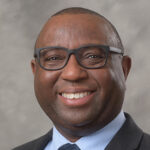
Rodrick
Andrews
Assistant Vice President for Admissions and Financial Aid
State University of New York at Oswego

Holly
Attenborough
Assistant Provost
University of Wisconsin-Platteville

Maria
Botero
Professor
Sam Houston State University (TX)

Jean
Clarke
Director, Learning Communities
Minnesota State University, Mankato
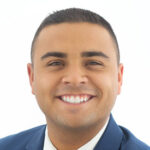
Kevin
Costa
Director of Employee & Labor Relations
Bridgewater State University (MA)

Christina E.
Denison
Director, William O. Douglas Honors College
Central Washington University

Christopher
Donoghue
Professor of Sociology
Montclair State University (NJ)

Johnna
Eaton
Dean of Students
East Georgia State College

Cynthia G.
Falk
Assistant Dean
State University of New York at Oneonta

Jenny
Green
Assistant Director of Assessment
State University of New York at Brockport

Cierra L.
Griffin
Executive Director for Adult Learners, Transfer, and Military Students
Fayetteville State University (NC)
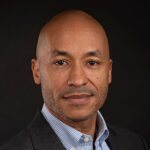
Jakari
Griffith
Department Chair and Provost Fellow
Bridgewater State University (MA)

Kendra
Haggard
Director of Student Engagement and Transitions
Northeastern State University (OK)
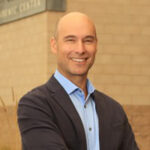
Thomas
Horvath
Interim Dean, College of Science
California State University Monterey Bay

Jamaal
Jackson
Head Men’s Basketball Coach
Kentucky State University
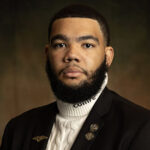
Theodore W.
Johnson
Assistant Professor – Aviation Institute
University of Nebraska at Omaha

Britney
Kyle
Faculty Senate Chair and Professor of Anthropology
University of Northern Colorado

Kareem
McLemore
Assistant Vice President of Strategic Enrollment Management
Delaware State University
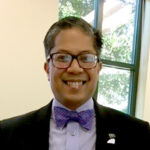
John J.
Montemayor
Director of TRIO Student Support Services
University of South Carolina Upstate
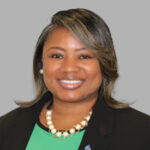
Patrice
Moorer
Assistant Vice President, Academic Affairs
University of West Florida
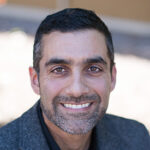
Aydin
Nazmi
Professor & Faculty Fellow
California Polytechnic State University, San Luis Obispo
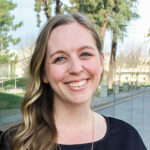
Melissa
Norris
Health Educator
California State University, Fresno

Dayana
Nunez
Associate Director of Student Enrollment Services
William Paterson University (NJ)
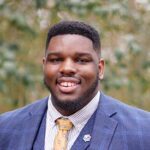
Jason
Perry
Director of Montevallo MADE
University of Montevallo (AL)
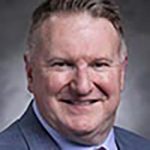
Chapman
Rackaway
Professor and Chair, Political Science
Radford University (VA)
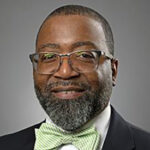
Johnny D.
Richardson
Director of Enrollment Communication Services
Georgia Gwinnett College
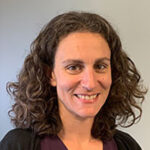
Christina
Robinson
Associate Vice President for Enrollment Management
Central Connecticut State University

Ronnie
Rollins
Associate Dean, College of Health, Science, and Technology
University of Central Missouri

Donyell
Roseboro
Chief Diversity Officer and Professor
University of North Carolina Wilmington

Desirée D.
Rowe
Associate Professor
Towson University (MD)

Joshua
Ruppel
Professor of Chemistry and Director of Research
University of South Carolina Upstate

Nick
Saenz
Assistant Vice President of Academic Affairs
Adams State University (CO)

Katie
Stompor
Executive Director, Digital Media and Brand Management
Purdue University Northwest
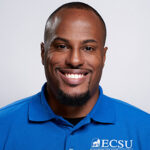
Brian
Wayne
Graduate Programs Recruiter
Elizabeth City State University (NC)
Recent Program News
Applications for the 2025 ELP cohort are closed.
Application Details
Application Requirements
- Early- to mid-career academic and administrative emerging leaders who are exploring opportunities to advance to higher-level administrative positions
- Brief description of the campus project/initiative you will lead under the guidance of a designated mentor
- Endorsement from a president/chancellor or cabinet-level administrator from your home institution
Important Dates
- The 2025 program will take place from June 2025 to December 2025
- Applications and endorsements for 2025 are due February 10, 2025
Get notified about the next application period.
"*" indicates required fields
Have questions about the Emerging Leaders Program? Let us know.
"*" indicates required fields

